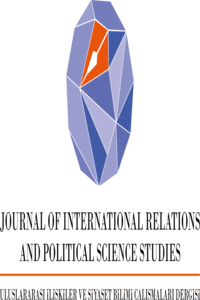AVUSTURYA-MACARİSTAN MONARŞİSİNİN ÇÖKÜŞÜ: JEOPOLİTİK GEÇİŞ VE ALGININ TEMEL ROLÜ
Avusturya-Macaristan İmparatorluğu'nun dağılma hikayesi son derece karmaşıktır ve bundan alınacak dersler hala çok önemlidir. Dağılmasından bu yana, son Orta Avrupa İmparatorluğu'nun çöküşüne yol açan faktörler, tarihçiler ve sosyal bilimciler tarafından çeşitli yönleriyle incelenmiştir. Bu çalışmalar arasında iki ana grup özellikle önemlidir. Bilim adamlarının ilk kategorisi, dağılmanın dış ve uluslararası nedenlerini belirlerken, ikinci grup, çöküşün arkasındaki ana nedenler olarak iç faktörleri önceliklendiriyor. Bu araştırma, bu analizlerin alaka düzeyinin yanı sıra İmparatorluğun dağılmasında hem dış hem de iç faktörlerin önemini kabul ediyor. Bunlar parçalanmayı tetiklese de asıl ve tek arka plan olarak değerlendirilemezler. Çalışma, devletin çöküşünü analiz etmek için jeopolitik bir bakış açısı önermekte ve birbiriyle ilişkili üç nedene odaklanmaktadır; jeopolitik dünya düzeninin dönüşümü – geçiş dönemi, Avusturya-Macaristan Monarşisi seçkinlerinin jeopolitik vizyon ve inisiyatif eksikliği ve buna bağlı olarak zayıf devlet-toplum ilişkileri ve nihayet jeopolitik söylemden dışlanma, hayal gücündeki değişiklikler, inanç ve anlatı.
THE COLLAPSE OF THE AUSTRO-HUNGARIAN MONARCHY THE FUNDAMENTAL ROLE OF THE GEOPOLITICAL TRANSITION AND PERCEPTION
The story of the dissolution of the Austro-Hungarian Empire is extremely complex, and the lessons to be learned from it are still very relevant. Since the dissolution, the factors which led to the collapse of the last Central European Empire have been studied from various aspects by historians and social scientists. Among these studies, two major groups are especially important. The first category of scholars identified external and international causes of the dissolution, while the second group prioritises internal factors as the main reasons behind the collapse. This research recognises the relevance of these analyses, as well as the importance of both external and internal factors in the Empire’s dissolution. Although these triggered the disintegration, they cannot be evaluated as the main and only background. The study suggests a geopolitical perspective to analyse the collapse of the state and focuses on three interrelated causes; the transformation of the geopolitical world order – the era of transition, the lack of geopolitical vision and initiative of the Austro-Hungarian Monarchy elites, and the consequent weak state-society relations and finally the exclusion from the geopolitical discourse, the changes in imagination, belief, and narrative.
Keywords:
Geopolitics, World Order, Transition, Austro-Hungarian Monarchy Collapse,
___
- Barkey, Karen (2006). “Changing Modalities of Empire: A Comparative Study of the Ottoman and Habsburg Decline”, Esherick, Kayali (Ed.). Empire to Nation: Historical Perspectives on the Making of the Modern World, London: Rowman & Littlefield Publishers. 167–197.
- Bibó, István (1948). “Eltorzult magyar alkat, zsákutcás magyar történelem”. Cieger András (Ed.). A kiegyezés (Nemzet és emlékezet). 2004. 319–343.
- Bideleux, R. & Jeffries, I. (1998). A history of eastern Europe. Crisis and change. London: Routledge.
- Byrappa, Ramachandra (2020). “Building foreign policy resilience in the 21st century: The concept of commonwealth” Jović-Lazić, Ana, Troude, Alexis (Ed.). Security challenges and the place of the Balkans and Serbia in a changing world. Belgrade, Serbia: Institute of International Politics and Economics (IIPE), 42–53.
- Byrappa, Ramachandra (2006). “State and Nation-hood: who bares the burden?” Bodnár, Demeter (Ed.). Állam és Nemzet a XIX-XX. században, Debrecen, 9–19. https://tinyurl.hu/tUmG/ (Accessed 10.05.2020).
- Csorba, László (2018). “A Kiegyezés „Kossuthiánus” kritikája”. Korunk, 2018 (2), 76–89. https://bit.ly/2ru207L (Accessed 05.10.2018).
- Deak, John (2014). “The Great War and the Forgotten Realm: The Habsburg Monarchy and the First World War”. The Journal of Modern History, 86 (2), 336–80. https://tinyurl.hu/d4W3/ (Accessed 04.10.2021.)
- Başlangıç: 2021
- Yayıncı: Uluslararası İlişkiler Çalışmaları Derneği
Sayıdaki Diğer Makaleler
Kitap İncelemesi: Türkiye’nin Dış Politikası, Oral Sander & Melek Fırat
Kitap İncelemesi: Strateji Bir Tarih, Lawrence Freedman
2015 SONRASI ALMANYA’YA SURİYELİ GÖÇÜNÜN SİYASİ YANSIMALARI: PEGIDA HAREKETİ VE AfD PARTİSİ ÖRNEĞİ
AVUSTURYA-MACARİSTAN MONARŞİSİNİN ÇÖKÜŞÜ: JEOPOLİTİK GEÇİŞ VE ALGININ TEMEL ROLÜ
